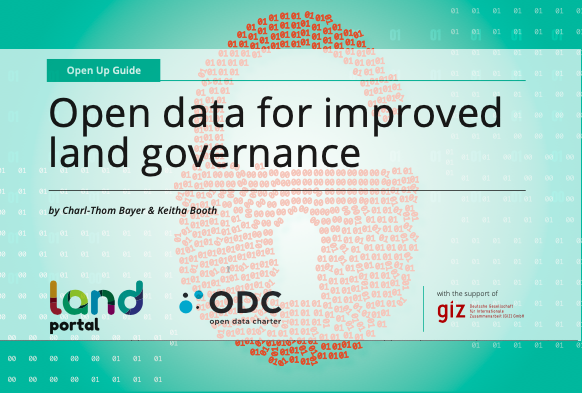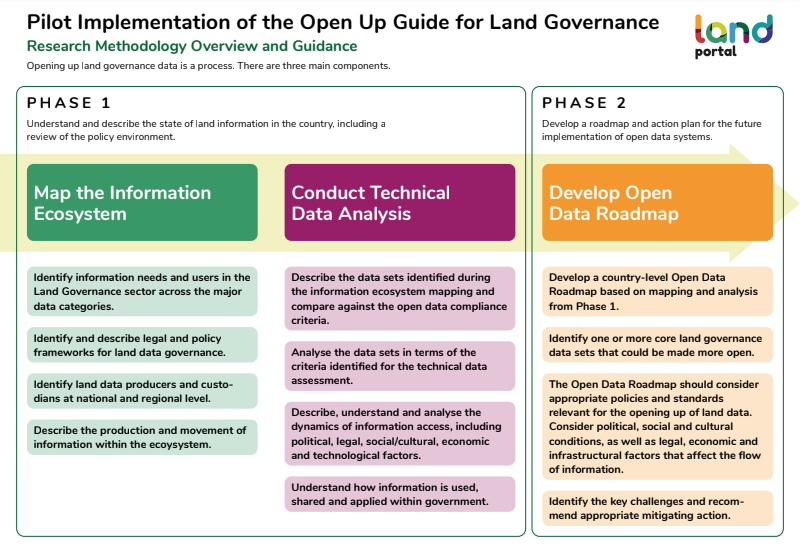Governments rarely publish their primary land tenure, use, value, and development data in open and reusable formats. Yet land is a critical global asset, and land governance — the exercise of political, economic, and administrative authority over land — should include processes for citizens to participate. Publishing open data on land governance has known barriers. In some cases, reliable, formal land tenure data does not exist at all or is not in digital form. Metadata is inadequate. Governments are hesitant to publish data that may include sensitive personal information.
The Open Up Guide for Land Governance is therefore a practical resource to be used by governments from developing countries to publish land-related data to improve data quality, availability, accessibility and use for improved citizen engagement, decision making and innovation. It sets out:
- Key datasets for land management accountability, and how they should be collected, stored, shared and published for improving land governance and transparency;
- Good data policies and frameworks;
- Existing gaps or challenges in the policies and frameworks; and
- Use cases from real-life examples to illustrate the potential impact and transformation this type of data can provide in local contexts.
“There is an open data revolution happening now,” says Laura Meggiolaro, Team Lead of the Land Portal, “and the Land Portal is transforming the landscape for land governance data. We are proud to co-launch this new, highly researched Open Up Guide in collaboration with our colleagues at GIZ and the Open Data Charter.”
The Land Portal complements this work by assessing how OPEN land data is in various countries -- to know more, check the State of Land Information.
 |
 |
|
Related content:
Beginner's Guide to Open Land-Related Data
The Land Portal works to embed land governance in open data discussions and vice versa. This primer is extracted from the recently published Open Up Guide for Land Governance.
First, What is Open Data?

